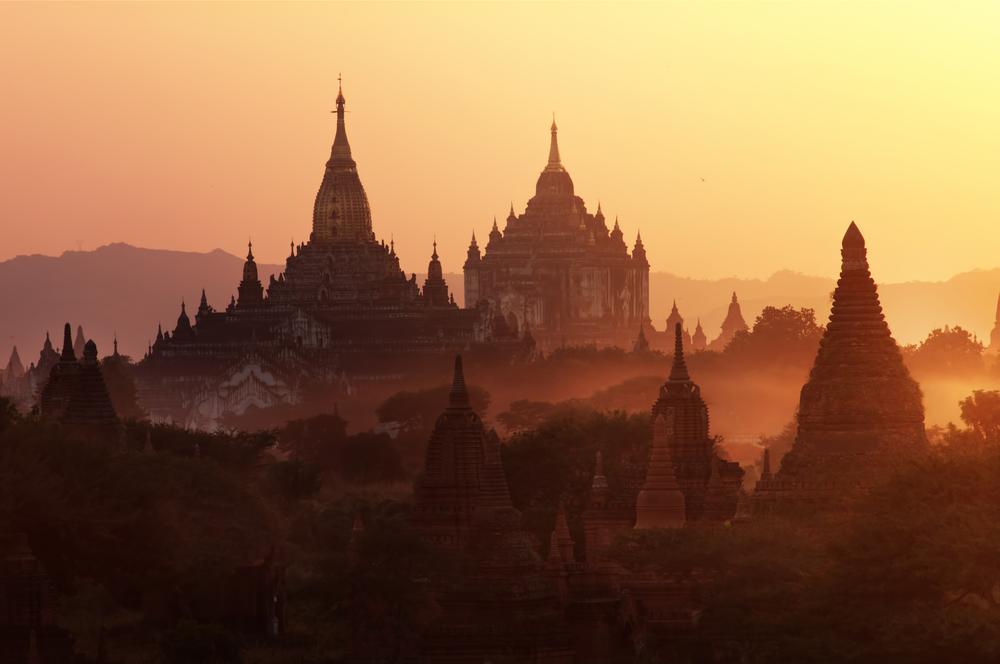New Year celebrations: 14 alternative ways to enjoy the holiday
October 9, 2025

Born into a minority tribal community in remote Burma, Pascal Khoo Thwe’s story grabs your attention right away. His memoir, portraying a life so different from ours, is captivating even before the intrigue unfolds. Stories from his childhood resonate with strong family bonds, spiritual influences, and the vivid details of a daily life shaped by the forces of nature. In this article, you can read an insightful interview with Pascal Khoo Thwe, the Burmese author.
‘As soon as my mother stopped giving me breast milk, my grandparents gave me rice wine – which is about 10% alcohol – because it is the only safe drink to drink in the jungle, especially in the hot season.’
Born into the Padaung tribe, famous for its “giraffe-necked” women who wear thick copper rings to elongate their necks, Pascal Khoo Thwe’s incredible story takes us from the jungles of Burma through Mandalay to the prestigious halls of Cambridge University. His journey is filled with unexpected twists, harrowing experiences, and moments of good fortune. He tells this remarkable tale with an engaging, lyrical style that vividly brings to life the highs and lows of living under Burma’s military rule.
In this interview with Pascal Khoo Thwe, TravelLocal explores his unique perspective on his homeland and gathers his tips on must-visit places for travelers interested in this fascinating, rapidly modernizing country.
‘Remember what your grandfather said about the earth’s being round at school and flat at home. He was a wise man and taught you what you need to know in Burma. It is the same in politics… They may be as ignorant as peasants – but they have the guns. Never, never argue with them.’

My village wasn’t really a village or a town in the usual sense. Most of its residents were farmers from the Kayan (Padaung), Shan, and Pa-O tribes, along with a few government workers and soldiers who were mostly Burman. The majority of the Kayan people are Catholic, while the rest are Buddhists. The village has one church and a couple of monasteries. Both groups lived together peacefully most of the time.
The traditional way of life was common and still continues to some extent. The main dangers were man-made, like landmines planted near electric pylons by the army. The surrounding jungles were home to many dangerous animals, but the local people knew how to handle them.
Physically, the place has changed a lot. The most heartbreaking part is the damage done to the environment and the loss of national heritage. Yet, the overall atmosphere remains much the same in terms of pace and rhythm, easygoing and carefree, especially when there’s no political pressure. I remember waking up every morning to the sound of roosters crowing, followed by people pounding rice, and then hearing the nuns singing their morning prayers accompanied by the ringing of bells.
I first traveled around the country in the early ’80s while attending Mandalay University. I visited Kachin State, Rangoon, northern Kayin State, and areas around Mandalay. It was an exciting experience, even though the country was quite unsettled at the time. I saw many things I had never encountered back home. My lasting impression was that central Burma smelled strongly of rotten fish.

In early 1988, I met Dr. John Casey, a Cambridge don, in Mandalay. Later that year, when the nationwide uprising broke out, I found myself in the jungle with rebels along the Thai-Burma border. The following year, with help from an ex-SAS soldier, Dr. Casey rescued me and brought me to England. My love of English literature began when I was a boy, I used to flip through English books even though I didn’t understand a word. My grandmothers helped by telling us traditional stories at bedtime. A teacher in Burma nurtured my literary skills, which were further developed with Dr. Casey’s guidance. My favorite author is Evelyn Waugh.
Since returning to Burma in 2012, my political involvement has mainly been at the grassroots level. Before that, I worked with the exile broadcaster Democratic Voice of Burma (DVB), based in Oslo, where I produced educational programs. The country’s future will be challenging, but I see hope in the new generation of political activists. Although they lack experience, their determination to help the people is strong. I find it exciting, but at the same time, I feel a bit sad that it has taken so many years to reach this point of normalcy.
My favorite places in Burma that I’ve visited are Kayah State, known for its untamed natural beauty, and Moulmein along with its surrounding areas, rich in history. Both destinations have only recently opened up to foreign travelers.

If you’re feeling inspired by our interview with Pascal Khoo Thwe, and want to learn more about Burma, then get in touch with our local experts today and start planning your next grand adventure! And of course make sure to get your hands on a copy of Pascal’s award winning book From the Land of Green Ghosts: A Burmese Odyssey before you head off.
Explore all featured destinations
Join our mailing list for travel inspiration, trip recommendations, and insights from our local experts.